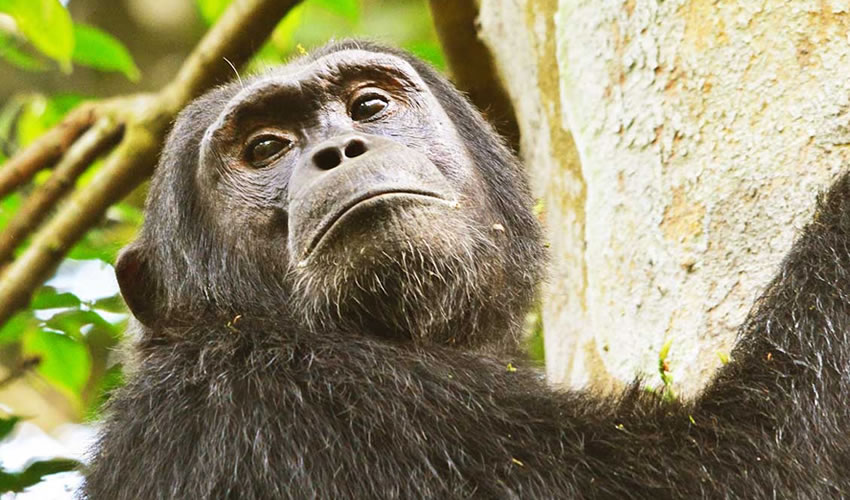Chimpanzee Habituation in Kibale is experienced in Kibale Forest National Park which provides a rich and unique habitat for more than 250 species of animal and over 300 types of birds. The animal species include 11 primates, including black and white colobus monkeys and chimpanzees. Monkeys can often be spotted from the road to the forest and the viewing of Chimpanzees in their natural environment is the main tourist attraction.
The forest is believed to contain the highest concentration of primate species in East Africa – these include Chimpanzees, black and white colobus monkeys, red colobus monkeys, blue monkeys and baboons.

Chimpanzee Habituation in Kibale is based at Kanyanchu in Kibale National Park. The primary attraction at Kanyanchu is the primate walk which gives our Visitors the chance to track Chimpanzees. Although sightings cannot be guaranteed, the probability is now over 80%. The park visitor centre is at Kanyanchu, signposted on the left from Fort Portal about 6Km before the village of Bigodi. Tracking to the habituated Chimp troops is conducted by trained guides who will also be able to tell you about the forest generally. The group of chimps in the Kanyanchu community is probably the largest in Kibale Forest, numbering about 45. Other animals found in the forest include elephants, Buffaloes, bush pigs and duickers. However, many of these are very shy and you will be lucky to see them. The Chimpanzee Habituation in Kibale gives visitors the opportunity for an extended and more personal involvement in the Chimpanzee Habituation in Kibale program. This activity currently takes a full day to enable visitors watch Chimpanzees de-nesting (early morning) and nesting ( late evening).
The habituation has been boosted with an excellent standard of guided walks which makes our Visitors enthusiastic about their in-forest experience. There are primate trails; self guided trails and night experiences that give visitors a better forest experience.
The 795 Square Km Kibale National Park in Western Uganda is part of the wider Kibale Conservation Area which consists of the Semuliki National Park and Toro – Semuliki and Katonga Wildlife Reserves. Kibale National Park is 24 Km east of the Rwenzori Mountains Foothills and 20 Km south-east of Fort Portal town in Western Uganda. The Primate Capital of the world is home to red colobus monkeys in what is probably their last viable population in Uganda.
The Park has a unique biophysical environment with varied scenery including beautiful crater lakes and hills. This, together with the forest, swamps, primates, birds and butterflies, provides important prospects for ecotourism.
